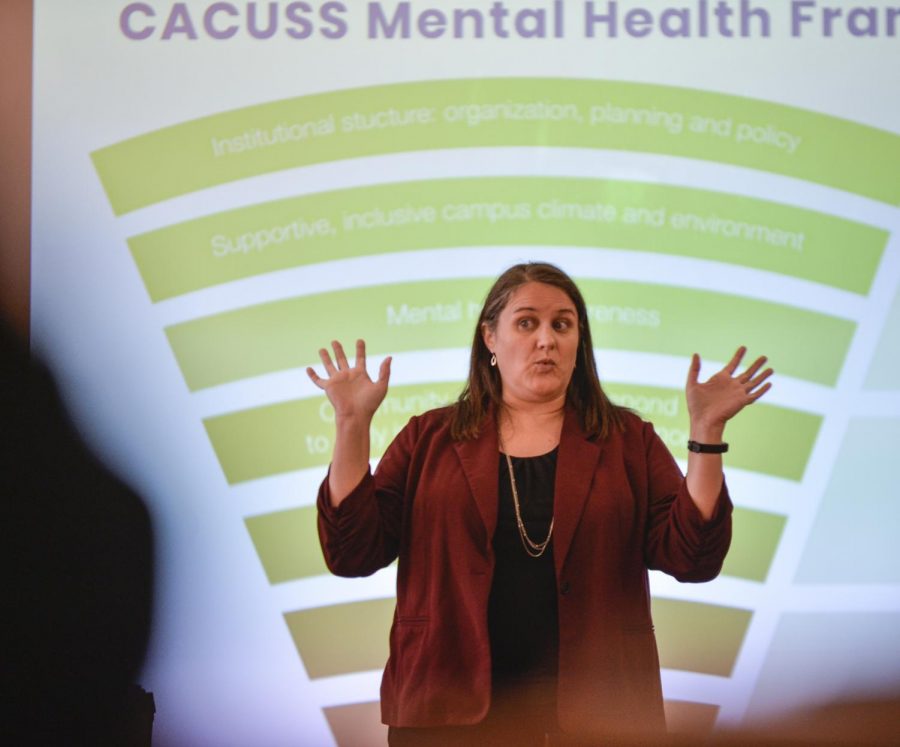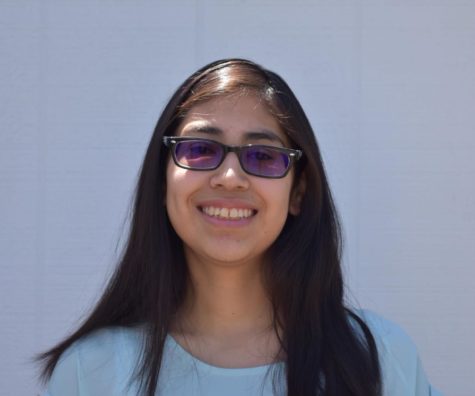Officials address accessibility for mental health services
Some mental health services will offer same-day appointments
Paula Adams, Cougar Health Services associate director, says they hope to expand WSU’s services when it comes to addressing mental well-being and suicide prevention.
October 14, 2019
Campus Mental Health Collaborative held a meeting on Friday to discuss how to make mental health services more accessible to students.
Paula Adams, Cougar Health Services associate director, said the purpose of the collaborative is to expand WSU’s capacity to address mental well-being and suicide prevention.
She said the goal is to enhance mental well-being on campus by looking at how the institution can better address the issue on campus.
WSU received a Substance Abuse and Mental Health Services Administration grant that was intended to help build up the internal infrastructure around mental health services and suicide prevention, Adams said.
The collaborative will move to a new model that addresses students who have less urgent mental health needs first, and then reach students with more acute needs. Adams said the new model was done to have more preventative measures.
Jennifer Ellsworth, counseling and psychological services director, said they are trying to find ways to meet the needs of students on campus.
She said they normally have long wait lists at the end of the semester because they are short-staffed.
The counseling and psychological services will shift to a same-day schedule where the counselors will wrap up their ongoing clinical work so they can be available for students looking to schedule an appointment the same day.
Ellsworth said they are working to figure out how to use their limited resources as effectively as they can.
Counseling Services is planning to have a central location in downtown Pullman with general health services information available to students and community members. They want to have a space that is paid for by the university in downtown Pullman with rotating providers.
She said they are working to make it easier for students to book an appointment online and meet with a counselor.
It’s not a duplication of what the counseling center offers, Ellsworth said. They are hoping that it will be more accessible to a broader range of students.
The goal would be for students who have a problem and are not interested in counseling or ongoing therapy to talk with somebody on a one-time basis.
Jill Creighton, dean of students and associate vice president for campus life, spoke about the system-wide efforts to provide mental health resources for students and the community.
She said AWARE Network aids with students facing financial concerns, homelessness, food insecurity, or have a concern around sexual assault.
They are working to see how they can make the AWARE network more inviting and more inclusive. Creighton said they will prioritize access to mental health services.
She said they are looking into what other universities are doing to expand or increase the accessibility of their services.
Creighton said WSU officials will review the existing services and identify the strengths and weaknesses of each to respond to an increased demand for mental health and other health care needs.
















